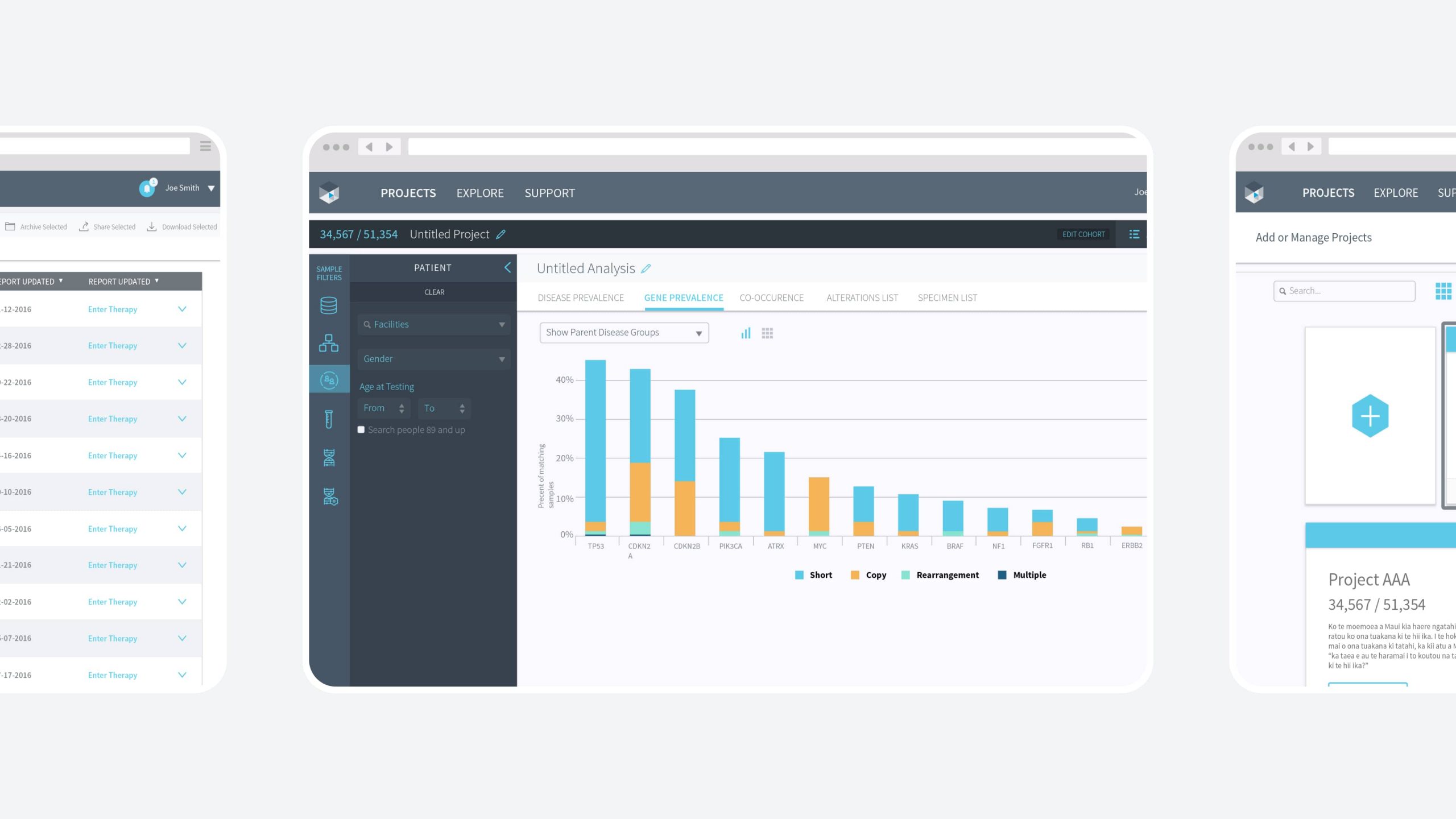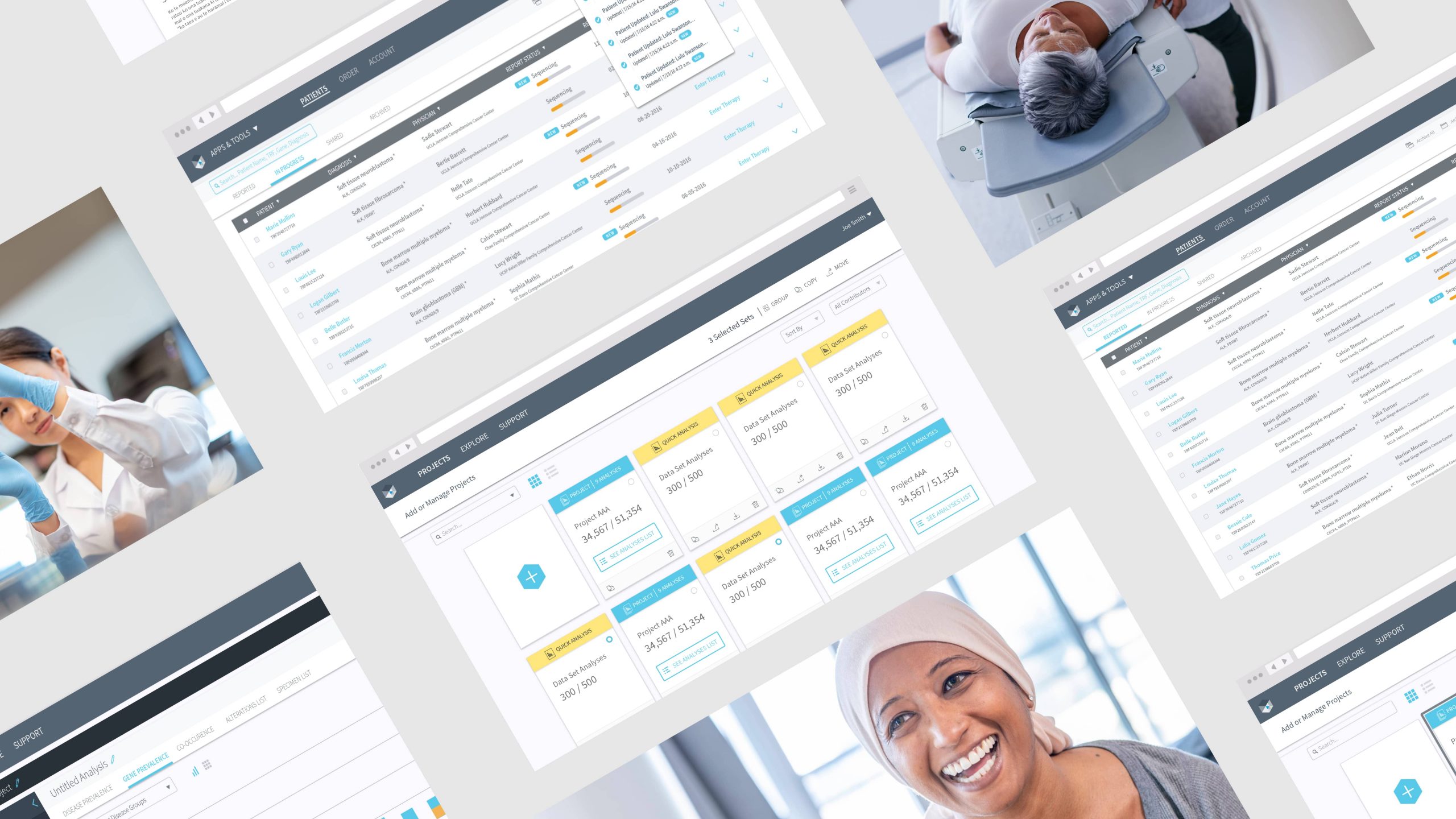
A pioneer in the field of genomic medicine,
Foundation Medicine (FMI) recognised the company had lots of data that could help researchers and biopharma companies advance precision medicine. However, FMI needed a partner to accelerate getting its ideas built and tested. This is where DEPT® stepped in to help bring the company’s ambitious vision to life.


Creating insights from data
Foundation Medicine is a world-renowned molecular insights company that focuses on genomic research. This entails figuring out how genomic abnormalities affect cancer. The company had a mountain of data at its disposal but no tools for researchers and pharmaceutical companies to make sense of it quickly. DEPT® created custom software to allow researchers to efficiently query the company’s wealth of data, as well as allow medical professionals to input clinical outcomes in order to track not just genomic abnormalities, but also how specific target therapies affected those abnormalities.

They wanted the insights needed to advance cancer care

Enabling employees to test the MVP
Following our agile methodology, we initially launched a minimum viable product, or “MVP”, that internal employees started using for their own research. By having Foundation Medicine’s researchers use the product themselves (what we like to call “tasting your own wine”) we were able to further refine the product concept and determine what screens and flows were most valuable to users and thus the business.

New tools for cancer researchers
Within three months, we equipped Foundation Medicine with a suite of tools that allowed their team to ingest genetic data from a lab and, based on this data and other factors, generate various reports. These showcased matching clinical trials, therapies, contextually relevant information (also known as “text modules”) and relevant genetic data about them. The company’s internal teams could now quickly slice and display their data in a myriad of formats, allowing them to produce reports they never had before and dramatically improving their ability to analyse data in new ways. This was a big change from the system in place before whereby each researcher had to come up with their own spreadsheets to analyse the data, wasting precious time and resources of Genomic PhDs. Researchers could now answer questions like “how often does disease X occur with gene alteration Y?” in a powerful way that would lead directly to improved drug therapies and treatments. More and faster data-driven research results mean better medical care across the board.
From a business perspective, these tools allowed genomicists to curate therapies, trials, text modules and ontologies of a gene, biomarker and disease trees. This included a rules engine that allowed genomicists to link therapies, trials and text modules to various combinations of gene and disease groups (based on the curated ontologies). When these ontologies changed, we automatically would audit and flag rules which may have been affected. We also applied algorithms to keep genomicists from having to reorder the text on every report.


From MVP to industry-leading software
Our initial product launch quickly grew into a powerful data analytics platform called FoundationInsights™ that enables access to rich analytics on genomic and clinico-genomic datasets. It has become a core part of cancer researchers’ work. Over the course of six months,DEPT® worked closely with the FMI engineering team to augment the product with key features, while at the same time transitioning the app to FMI’s internal product team. Today, FoundationInsights™ is considered a critical tool in the fight against cancer and is used by many of the world’s top genomicists.
300k
genomic profiles created
150
cancer subtypes mapped
Results
DEPT® created a world-class database and software and implemented it into Foundation Medicine’s existing knowledge base. This has allowed researchers to speed up their research and analysis process as the data can easily be inputted and categorized making it easy for others to access the information. Today, FoundationInsights™ has aided in the processing of over 300,000 genomic profiles and they’ve mapped over 150 cancer subtypes, making it one of the largest cancer databases in the world.
Questions?
Global SVP, Engineering & Technology


